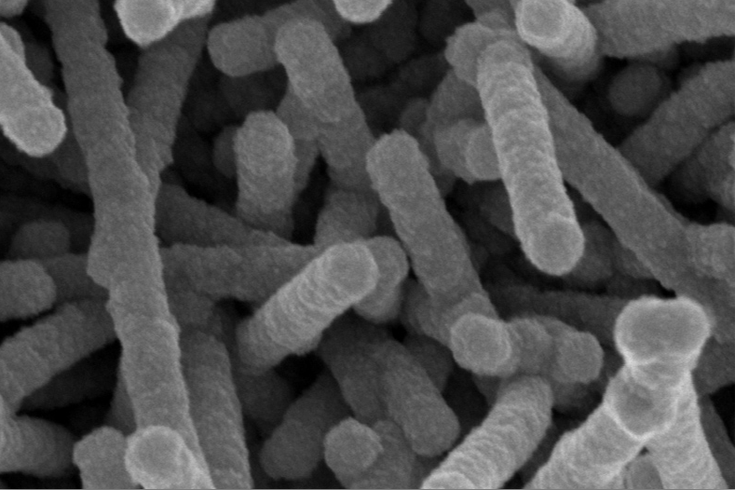
March 31, 2015
 Drexel University /for PhillyVoice
Drexel University /for PhillyVoice
The Tobacco mosaic virus once threatened U.S. crops, but could now help triple the efficiency of heating water.
“Even slight improvements to technologies that are used so widely can be quite impactful,” McCarthy said. “Phase-change heat transfer plays an important role in everything from power generation to water purification, HVAC and electronics cooling. Increasing performance of these systems would translate to significant improvements in the way we produce, consume and conserve our energy and water resources.”
The research specifically aims to control the formation of vapor bubbles during the boiling process, preventing a volatile surface condition known as critical heat flux.
To do so, McCarthy and his team are building nanostructured coatings that optimize surface liquid levels by relying on the formal properties of the Tobacco mosaic virus. With a metallic coating to render it inert, the virus effectively helps create a wicking effect that delays the dry-out of critical heat flux and enables higher heat transfer rates.